Adelaide Solar & Energy Insights 2025
Local expertise on rebates, regulations, and best practices for South Australian solar installations
Why Adelaide is Perfect for Solar
Adelaide enjoys some of Australia's best solar conditions, with excellent sun hours and supportive government policies. However, success depends on understanding local climate challenges and maximizing available incentives.
5.2
Peak Sun Hours Daily (Average)
280+
Sunny Days Per Year
45°C+
Summer Peak Temperatures
$6,000
Available Battery Rebate
🌡️ REQ Energy's Adelaide Advantage
Our decades of cooling systems experience in Adelaide gives us unique insights into how local climate affects solar and battery performance. We understand the thermal challenges that generic installers miss, ensuring your system performs optimally year-round.
Adelaide Climate & Solar Performance
🏙️ Adelaide Solar Experts
Get local expertise from Adelaide's thermal management specialists.
Adelaide's Solar Resource
Adelaide receives excellent solar irradiation, making it one of Australia's premier solar locations:
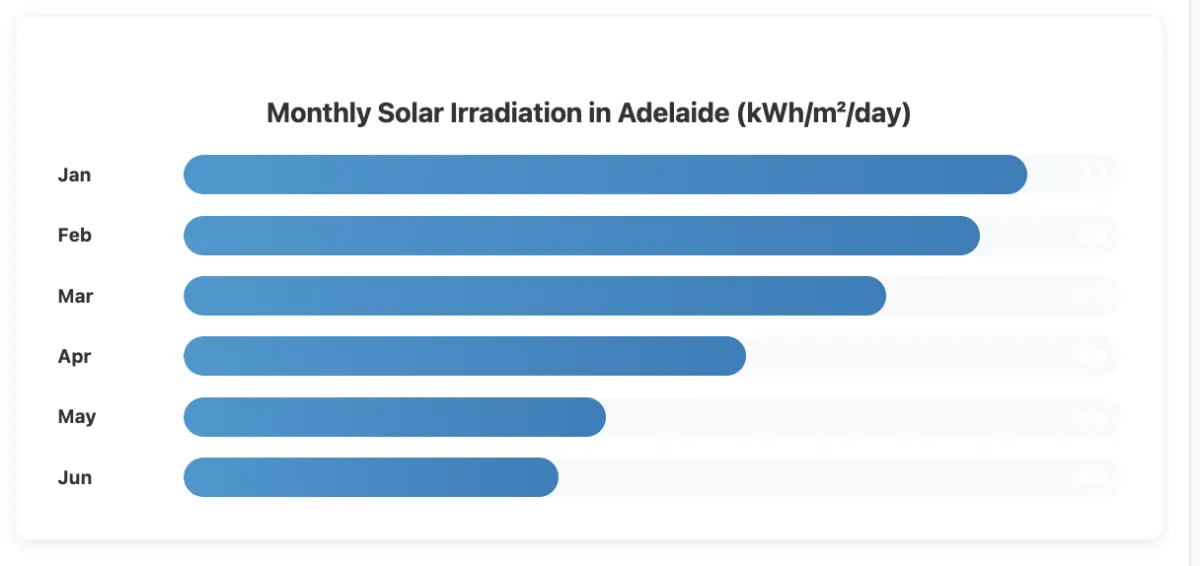
Climate Challenges
While Adelaide's solar resource is excellent, local climate presents specific challenges:
Summer Heat Management
Panel efficiency loss: 15-25% reduction on 45°C+ days
Inverter derating: Protection mechanisms reduce output
Dust accumulation: Dry conditions increase soiling
UV intensity: Accelerates component aging
Winter Considerations
Lower sun angles: Reduced generation for flat-mounted systems
Cloud cover: Variable daily output
Shorter days: Peak generation period reduced
Rain benefits: Natural panel cleaning improves efficiency
🌡️ REQ Energy Thermal Management Insight
We design installations with Adelaide's thermal challenges in mind - strategic panel spacing, thermal-aware inverter selection, and mounting systems that promote cooling. This maintains performance during Adelaide's extreme summer conditions.
⚠️ Common Adelaide Installation Mistakes
Ignoring thermal derating in system sizing
Poor ventilation around roof-mounted equipment
Not considering afternoon sun reflection from structures
Inadequate dust mitigation strategies
📊 Adelaide Temperature Impact on Batteries
Tesla Powerwall 2 performance at different temperatures:
Optimal (25°C): 100% capacity, 10+ year lifespan
Adelaide Summer (45°C): 85% capacity, 20% faster degradation
Extreme Heat (50°C+): 70% capacity, thermal protection kicks in
REQ Thermal-Managed System: 95%+ capacity even on 42°C days
🔧 Industry Secret: Thermal Derating
Most installers don't factor thermal derating into battery sizing. We calculate real-world Adelaide performance, not just spec sheet numbers. This means properly sized systems that deliver promised performance.
⚠️ Common Adelaide Battery Mistakes
Installing on hot north-facing walls
Insufficient clearances in garages/sheds
Not considering afternoon sun reflection
Ignoring heat from nearby appliances
Government Rebates & Incentives (2025)
Federal Government Incentives
Small-scale Technology Certificates (STCs)
Available for all solar installations under 100kW:
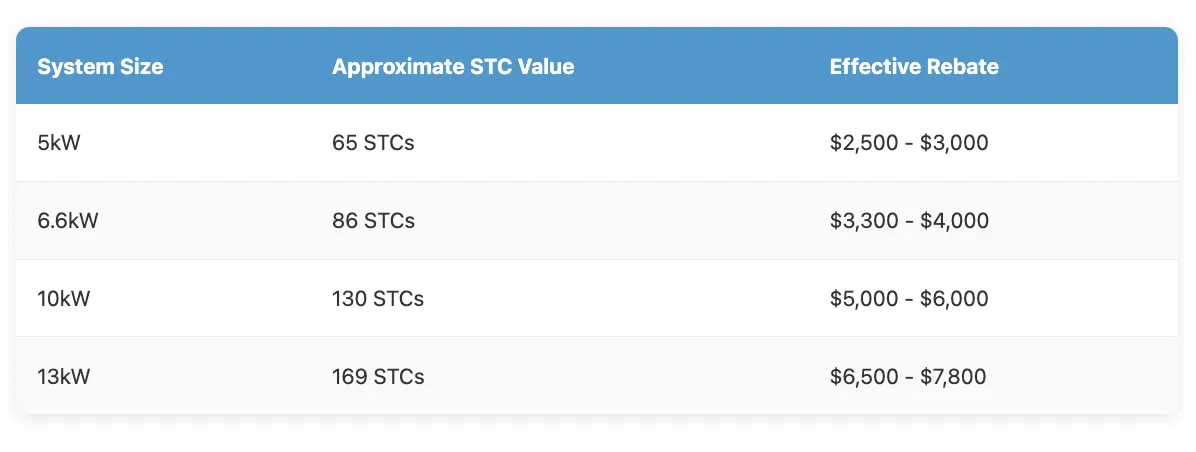
South Australian Government Incentives
SA Home Battery Scheme
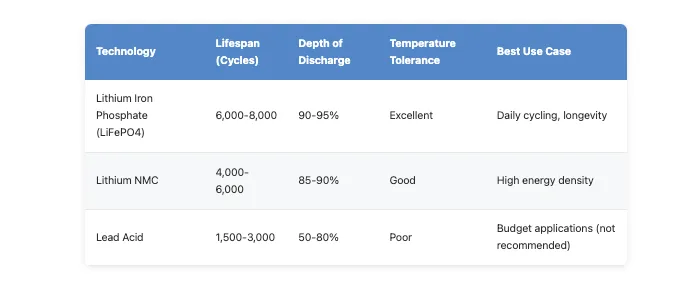
🔋 Battery Rebate Details (2025)
ebate Amount: Up to $6,000 per household
Eligibility: Combined household income under $180,000
System Requirements: Minimum 3kWh capacity
Additional Benefit: Interest-free loan up to $10,000
Installation Requirements: CEC-approved installer
Virtual Power Plant Programs
Several VPP programs offer additional benefits:
Tesla Virtual Power Plant: Revenue sharing from grid services
AGL VPP: Bill credits and grid participation
Simply Energy VPP: Competitive rates and battery optimization
Council-Specific Incentives
Some Adelaide councils offer additional rebates:
City of Adelaide: Sustainability grants available
City of Charles Sturt: Environmental improvement grants
City of Burnside: Energy efficiency rebates
💰 Maximizing Your Rebates
Stack federal STCs with SA battery rebates for maximum savings. A typical 6.6kW solar + 13.5kWh battery system can receive $9,000-10,000 in combined rebates, plus access to interest-free loans.
💡 REQ Energy Sizing Philosophy
We size batteries for 80% depth of discharge in Adelaide's climate. This extends lifespan and accounts for thermal derating during hot weather. Better to have slightly more capacity than risk early degradation.
Local Regulations & Requirements
SA Power Networks Requirements
All grid-connected solar systems in Adelaide must comply with SA Power Networks standards:
Connection Approval Process
Systems ≤5kW: Generally pre-approved
Systems 5-10kW: Basic application required
Systems >10kW: Detailed technical assessment
Battery storage systems: Additional approvals may apply
Export limitations: May apply in constrained network areas
Technical Standards

Council Approval Requirements
Most Adelaide councils have streamlined solar approval processes:
Development Approval Exempt
Residential rooftop installations
Standard mounting systems
No heritage area restrictions
Setback compliance maintained
When Approval May Be Required
Heritage areas: Character area restrictions
Ground-mounted systems: Setback and appearance considerations
Commercial installations: Larger systems may need approval
Battery installations: Some councils require notification
⚠️ Compliance Is Critical
Non-compliant installations can result in disconnection, fines, and insurance issues. Always use CEC-accredited installers who understand local requirements.
Best Adelaide Suburbs for Solar
Based on our installations and performance data, these Adelaide areas consistently deliver excellent solar results:
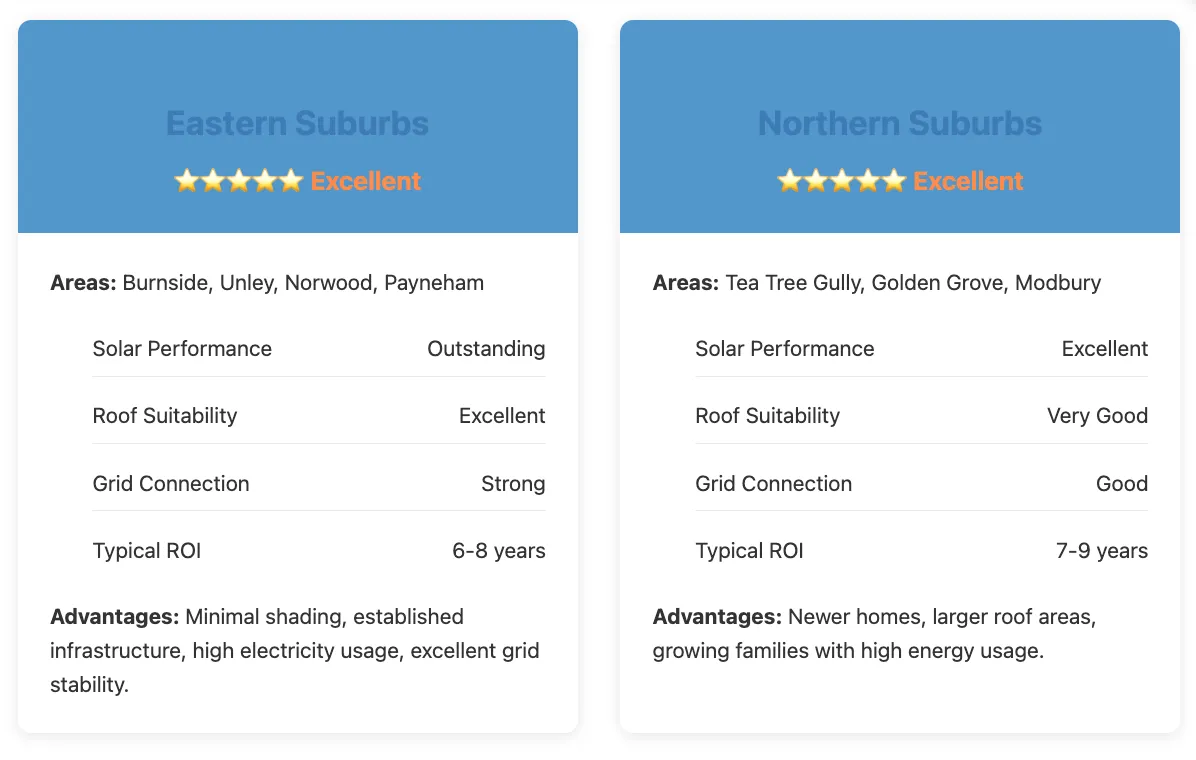
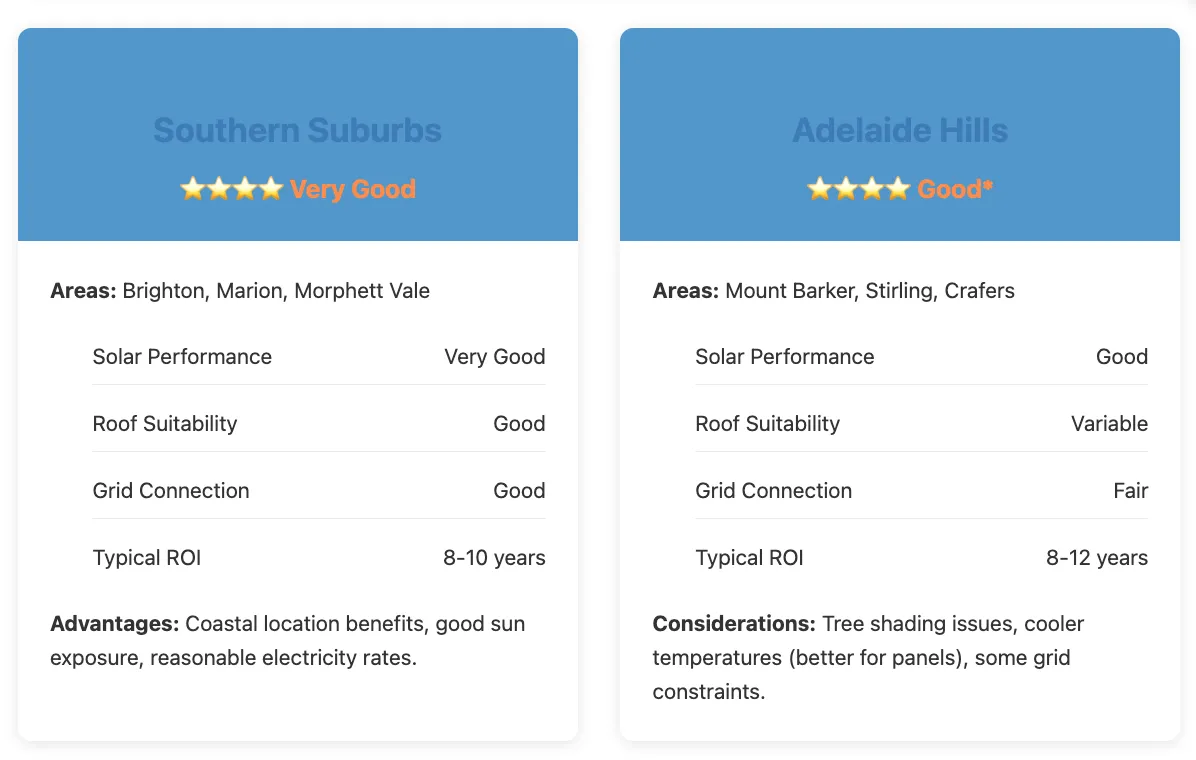
💰Factors That Make Suburbs Solar-Friendly
Minimal tree coverage and shading
North-facing roof availability
Strong electrical grid infrastructure
Higher electricity consumption patterns
Newer housing with suitable roof structures
Council support for renewable energy
🏠 Site-Specific Considerations
While these suburbs generally perform well, every property is unique. Factors like individual roof orientation, shading, and electrical setup can significantly impact performance regardless of the suburb.
Get Accurate Battery Sizing
Our thermal management experts analyze your actual usage patterns and Adelaide climate factors to recommend the perfect battery size.
WHAT WE OFFER
Our Best Selling Products

Leathered Granite
$65.00 $65.00
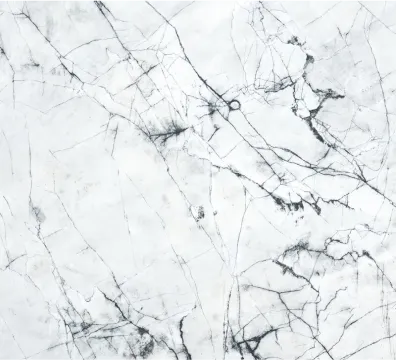
Calacatta
$20.00

Carrara white marble
$18.00 $20.00
Major Retailer Rate Comparison
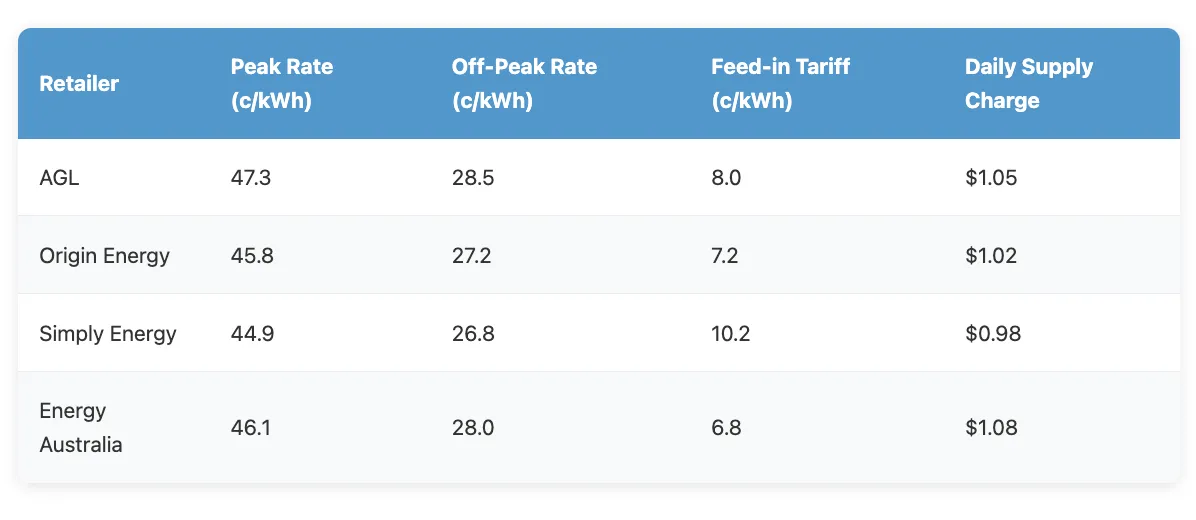
Time-of-Use Tariff Structure

⏰ Typical Adelaide TOU Schedule
Peak (4pm-10pm): 45-55c/kWh - Highest rates when solar isn't generating
Shoulder (7am-4pm, 10pm-11pm): 30-35c/kWh - Moderate rates
Off-Peak (11pm-7am): 25-30c/kWh - Lowest rates overnight
Battery Storage Opportunity: Store solar during the day, use during peak period = 35-45c/kWh value
Feed-in Tariff Trends
South Australian feed-in tariffs have been declining but still offer value:
2020: 10-15c/kWh average
2023: 8-12c/kWh average
2025: 6-10c/kWh average
Trend: Continuing decline, making self-consumption more valuable
Optimizing Your Electricity Plan
Best Plans for Solar Owners
High feed-in tariff rates for excess export
Time-of-use rates that reward battery storage
Low daily supply charges
Competitive peak rates for unavoidable grid usage
💡 REQ Energy Rate Analysis
We analyze your usage patterns and recommend the optimal electricity plan for your solar system size and battery storage. This can add hundreds in annual savings beyond the solar generation benefits.
Maximize Your Solar Investment
Get a free analysis of your current electricity usage and the best solar system size for your Adelaide home.
Seasonal Performance Patterns in Adelaide
What to Expect Throughout the Year
Understanding seasonal variations helps set realistic expectations and optimize system usage:
Summer (December - February)
Pros: Maximum sun hours, peak generation potential
Cons: High temperatures reduce panel efficiency, increased cooling loads
Performance: 85-90% of rated capacity due to thermal derating
Battery Benefit: High value due to peak AC usage
Autumn (March - May)
Pros: Optimal panel temperatures, excellent weather conditions
Cons: Gradually decreasing daylight hours
Performance: 95-100% of rated capacity - peak efficiency period
Ideal For: System commissioning and optimization
Winter (June - August)
Pros: Cool panel temperatures, rain cleaning effect
Cons: Short days, lower sun angles, cloud cover
Performance: 40-60% of summer generation levels
Heating Loads: Reverse cycle systems can utilize midday generation
Spring (September - November)
Pros: Increasing daylight, moderate temperatures
Cons: Variable weather patterns
Performance: Rapidly improving toward summer levels
Opportunity: System maintenance and optimization
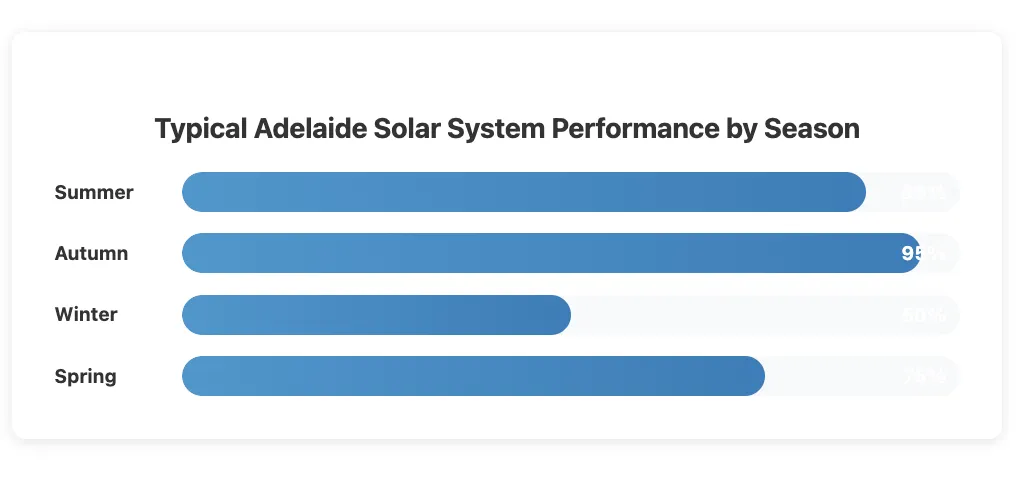
Adelaide Solar Success Stories
Burnside Family Home
📊 System Performance: 6.6kW Solar + 13.5kWh Battery
Location: Burnside (east-facing roof)
Installation: March 2024
Annual Generation: 8,500kWh (above predicted)
Self-Consumption: 78% with battery storage
Annual Savings: $2,400 in electricity costs
Payback Period: 6.8 years
REQ Advantage: Thermal-optimized installation maintained 94% summer efficiency
Tea Tree Gully New Build
🏠 System Performance: 10kW Solar System
Location: Tea Tree Gully (north-facing roof)
Installation: August 2024
Annual Generation: 13,800kWh (optimal conditions)
Self-Consumption: 35% (high export generation)
Annual Savings: $2,100 in electricity costs
Feed-in Revenue: $720 annually
Future Battery: Planned addition in 2025
Brighton Coastal Property
🌊 System Performance: 8kW Solar + Pool Integration
Location: Brighton (mixed roof orientations)
Installation: January 2024
Annual Generation: 10,200kWh
Pool Integration: Solar heating and pump optimization
Annual Savings: $1,950 in electricity + pool heating costs
Coastal Benefits: Sea breeze cooling improves panel efficiency
Maintenance: Quarterly cleaning due to salt exposure
Ready to Join Adelaide's Solar Success Stories?
Get a personalized assessment for your Adelaide property from our thermal management experts.
REQ Energy
Adelaide's solar & battery specialists with decades of cooling systems expertise.
Popular Posts
Battery Thermal Management
Adelaide Solar Rebates 2025
Cooling Systems & Solar
Categories
Thermal Management
Battery Storage
Adelaide Insights
Solar Guides
Contact Us
20-30 Crozier St, Port Adelaide SA 5015, Australia, 20 - 30 Crozier St, Port Adelaide SA 5015
Phone 0410 220 208
© 2025 REQ Energy Blog. | Privacy Policy | Sitemap - All Rights Reserved.

